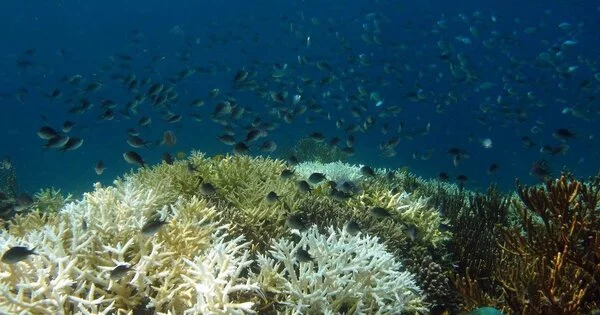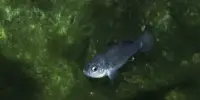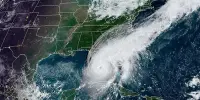Scientists from Simon Fraser University are part of an international team of researchers who have developed a new science-based indicator to assess the state of the oceans – and the potential risk of extinction of their species. Recent biodiversity studies show an unprecedented loss of species, ecosystems, and genetic diversity on land, but the extent to which these patterns are widespread in the oceans is unknown.
In a new study published recently in the journal Science, researchers from Spain’s AZTI Technology Centre, in collaboration with SFU and the International Seafood Sustainability Foundation (ISSF), developed a global indicator that measures the state of marine biodiversity based on changes in extinction risk recorded in oceanic predatory fishes over seven decades (52 populations of 18 different species of tuna, billfish and sharks).
The study reveals how, since the 1950s, the global extinction risk of oceanic predatory fishes has continuously worsened due to excessive fishing pressure until the late 2000s.
It’s encouraging to see we’ve been able to halt declines of tunas and billfishes but the decline of sharks continues. If nothing is done to reduce overfishing and lack of effective management, the loss of these species threatens the balance of ecosystems as well as the risk of food security and jobs in both developed and developing countries.
Nick Dulvy
The findings provide some hope following the global rebuilding of commercially important tuna and billfish species, but they also reveal a problem in the management of sharks captured incidentally by the same fisheries, highlighting the importance of taking action to prevent their extinction.
Then, management measures implemented in international fisheries organizations effectively reduced fishing mortality, allowing tunas and billfish to recover. Nonetheless, the risk of extinction in poorly managed sharks is increasing.
Fishing is one of the primary causes of population declines in ocean wildlife. Unless vessels catch fish faster than stocks can replenish, catching fish is not inherently bad for the ocean. This is known as overfishing.

“It’s encouraging to see we’ve been able to halt declines of tunas and billfishes but the decline of sharks continues,” says SFU’s Nick Dulvy, distinguished professor and Canada Research Chair in Marine Biodiversity and Conservation.
“If nothing is done to reduce overfishing and lack of effective management, the loss of these species threatens the balance of ecosystems as well as the risk of food security and jobs in both developed and developing countries.”
The authors of the study believe that shark fisheries management can replicate the success of tuna and billfish fisheries management. According to them, oceanic sharks urgently require better management and protection from overfishing, which can be accomplished by regulating trade, redefining priorities in international fisheries bodies, and establishing clear biodiversity goals and targets.
According to the study, implementing science-based catch limits and changing how and where gear is deployed can help to avoid and reduce incidental shark catching. The CITES meeting in Panama this week provides a once-in-a-lifetime opportunity to regulate 90 percent of the global shark fin trade.
According to the Food and Agriculture Organization of the United Nations, the number of over-fished stocks has tripled in half a century, and one-third of the world’s assessed fisheries are now pushed beyond their biological limits. Bycatch—the capture of unwanted sea life while fishing for a different species—is closely linked to overfishing. This, too, is a serious marine threat that results in the unnecessary deaths of billions of fish, as well as hundreds of thousands of sea turtles and cetaceans.
















